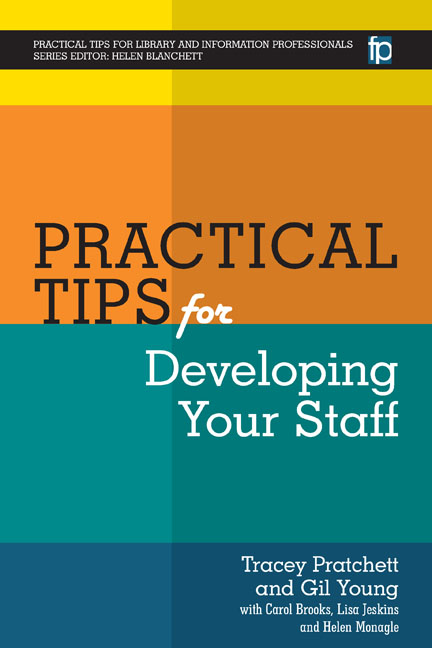Book contents
- Frontmatter
- Contents
- List of figures and tables
- Acknowledgements
- The authors
- List of abbreviations
- Series Editor's introduction
- Introduction
- Section 1 Theories
- Section 2 Infrastructure
- 11 Why develop staff?
- 12 Workforce planning
- 13 Job descriptions
- 14 Person specifications
- 15 Advertisements
- 16 Shortlisting
- 17 Interviews
- 18 Interviews – presentations and tests
- 19 Interviews – feedback
- 20 Inductions
- 21 Managing performance
- 22 Team development plans
- 23 Appraisals – preparing
- 24 Appraisals – conducting
- 25 Setting objectives
- 26 One-to-ones
- 27 Feedback – general
- 28 Team building
- 29 Team meetings
- 30 Sharing learning with the team
- 31 Writing references
- 32 Exit interviews
- 33 Effective handover
- Section 3 Activities and tools
- Index
24 - Appraisals – conducting
from Section 2 - Infrastructure
Published online by Cambridge University Press: 09 June 2018
- Frontmatter
- Contents
- List of figures and tables
- Acknowledgements
- The authors
- List of abbreviations
- Series Editor's introduction
- Introduction
- Section 1 Theories
- Section 2 Infrastructure
- 11 Why develop staff?
- 12 Workforce planning
- 13 Job descriptions
- 14 Person specifications
- 15 Advertisements
- 16 Shortlisting
- 17 Interviews
- 18 Interviews – presentations and tests
- 19 Interviews – feedback
- 20 Inductions
- 21 Managing performance
- 22 Team development plans
- 23 Appraisals – preparing
- 24 Appraisals – conducting
- 25 Setting objectives
- 26 One-to-ones
- 27 Feedback – general
- 28 Team building
- 29 Team meetings
- 30 Sharing learning with the team
- 31 Writing references
- 32 Exit interviews
- 33 Effective handover
- Section 3 Activities and tools
- Index
Summary
HAVING PREPARED ALL the paperwork in advance of the appraisal meeting both you and your employee should arrive with a clear idea of what will happen. CIPD (2015) indicates that a performance appraisal meeting should include:
• measurement against clearly defined objectives and values
• an opportunity to give feedback to the individual about their progress and performance
• an opportunity for positive reinforcement
• facilitation of an honest and open discussion in which the employee can raise concerns or issues
• ending by defining SMART goals (see Tip 25, p. 59) and objectives for the coming year which both parties agree.
The appraisal meeting should provide space for the employee to discuss their career objectives, identify their personal training needs and highlight their plans for the coming year. Whilst the appraisal is often focused on service and organizational objectives and how the employee can contribute to these, it also provides space for you to find out more about the individual and their aspirations.
Role of the manager
As the line manager or supervisor, your role is to manage the process and keep things on track. The meeting should have a clear structure and be focused on the individual, but it should be sensitively handled and allow for an honest and open discussion. Having a working relationship which is based on trust is integral to being able to give and receive honest feedback and you should both agree the next steps.
You need to ensure that you do not dominate the discussion and that you both have the opportunity to speak and be heard. You are not dictating what should happen or controlling the discussion, even if there are both positive and negative issues that you wish to discuss. The appraisal is about assessing an individual's performance, identifying training needs and setting goals for improvement. If not handled well it can be demotivating for the employee and can result in disengagement.
Facilitating an effective appraisal meeting requires you to have well developed skills in a number of areas and the following list provides some techniques which can improve the appraisal meeting.
- Type
- Chapter
- Information
- Practical Tips for Developing Your Staff , pp. 56 - 59Publisher: FacetPrint publication year: 2016



